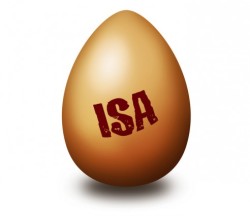What Impact Does Inflation have on Savings
The recent surge in inflation rates within the UK is having a significant impact on savings.
Inflation in goods and services has the effect of reducing the value of savings and any capital where the interest paid into it falls below the current rate of inflation.
In this context, savings can depreciate if value if the interest paid out on them does not keep track with, or is set above inflation. How, then, does this work, and what are some of the approaches you can take to combat inflation?
Prices Index
In short, inflation refers to the basic cost of goods, which can rise and fall depending on supply and demand; this is measured by the Consumer Prices Index and the Retail Prices Index, and is assessed on a regular basis. RPI can cover mortgages and other large scale costs, while CPI tends to focus on everyday goods. In November, the RPI experienced 3.2 per cent inflation over previous prices, while the CPI saw a rise of 2.7 per cent. The cost of living is increasing every few months, which can be problematic if you have money tied up in savings and investments.
The money you’ve saved up can no longer buy you as much if the price of goods and services have increased, and is dependent on interest rates rising above inflation to keep its value from dropping down. The rate of interest paid into savings accounts need to track against and above inflation in order to prevent your savings from gradually declining in value.
Pensioners & Unemployed
The savers who tend to suffer the most from inflation are those that are no longer working, as wages tend to increase in line with inflation to make up the difference in cost; pensioners and the unemployed stand to suffer from the depreciating interest on their wages. The Bank of England currently has a base interest rate of 0.5 per cent, with savings accounts having to offer interest that is above the current rate of inflation to keep accounts going. Interest is also taxed on savings accounts, meaning that rates have to be high enough to cover losses.
If inflation rates are at 1 per cent, than interest rates need to be 1.25 per cent or higher on account to keep savings in a healthy position - many savers opt for an interest rate on their savings that is index-linked, protecting them from any sudden changes. However, index-linked interest can be a problem, as accounts tend to be set for several years, and you may suffer if inflation drops and more competitive rates of interest that are much higher than inflation are being offered. Penalty charges can also be served for withdrawing from these accounts before the end of a contract.
ISA
Other options for saving money without struggling with inflation include taking out an ISA - this is an account where you can save around £5,640 per tax year without tax being paid on the interest you receive. This means that you have more of a margin as a saver to avoid being hit by inflationary rises - however, you would still need a rate that tracks higher than inflation - a rate of no less than 3.39 per cent is currently needed for basic rate tax payers; 4.51 per cent is required for higher income tax payers, and 5.41 per cent for the highest earners.
However, while savings accounts can suffer as the result of inflation, you can benefit if you have debts. Any money owed can decrease in value as the result of inflation, meaning that the amount you pay back will not be as much as it was originally worth - this also means that low interest rates paid on debt will ensure that your debts don’t significantly increase. In order to really benefit from the depreciating value of debt, though, you’ll need to be working and in line to receive wage rises that increase to beat inflation. In this context, a small margin can be drawn on what you originally paid, meaning that you can stand to save money if inflation continues to make your debt lower than your increasing income.









